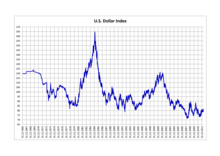Safe haven (investment)
Safe Harbor is a slang common expression to refer to an investment in which the forecasted return of capital is most likely on the value of the capital employed. While the capital employed results from the addition of the investment volume and ancillary costs, the return flow of capital, which is usually several years in the future, is purely speculative and is derived from previous developments in the value of a so-called financial product.

Historically, gold is an investment to which the property of long-lasting value inventory or an increase in value was ascribed. In terms of currencies, the Swiss franc and US dollar are considered safe havens for investments. The following rule of thumb applies: the more market participants are convinced that a certain product will retain its value, the more the value development of this product is decoupled from negative real economic impulses. For example, the US dollar initially lost value in the financial crisis from 2007 onwards , but it justified its reputation as a safe haven within the next two years when it regained its old strength - compared to the six currencies weighted in the US dollar index - returned. This indicates that investors on the capital market have a high level of confidence in the safety of the port and once again reinforced the currency's reputation as a stable capital investment. Most countries around the world, especially China, hold currency reserves in US dollars. They hope that this will preserve the value of their national assets and accept that in the same period of time, significantly higher returns were to be posted on investments in other currencies. In contrast to these currencies, the US dollar stands behind the strength of the American economy and an excessive loss or total failure of the investment are therefore both extremely unlikely.
Other safe havens include real estate , paintings, and bonds . Any product whose expected selling price will generate the same real value as it was when it was purchased is by definition a safe haven. The projection of past performance and trust alone give an investment an image of stability. Products labeled in this way can just as easily become a total failure for the investor.
Use in other languages
The English term safe haven , which is older than the German phrase Safe Harbor , denotes a hard currency . The English term safe harbor, on the other hand, focuses on compliance with legal norms . It is not limited to the financial market, e.g. For example, the Digital Millennium Copyright Act is one of the safe harbor laws in the USA .